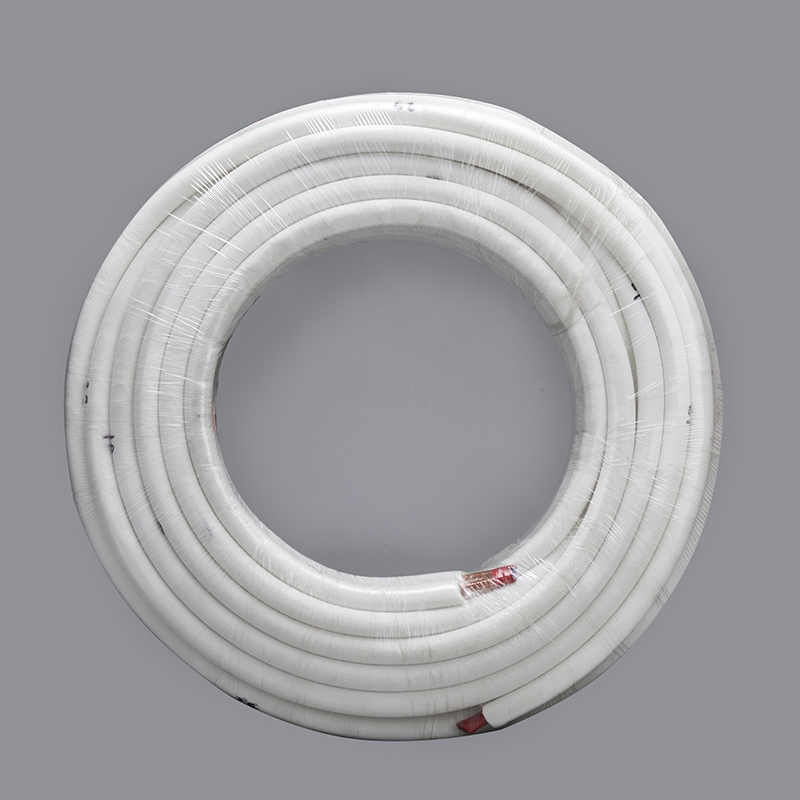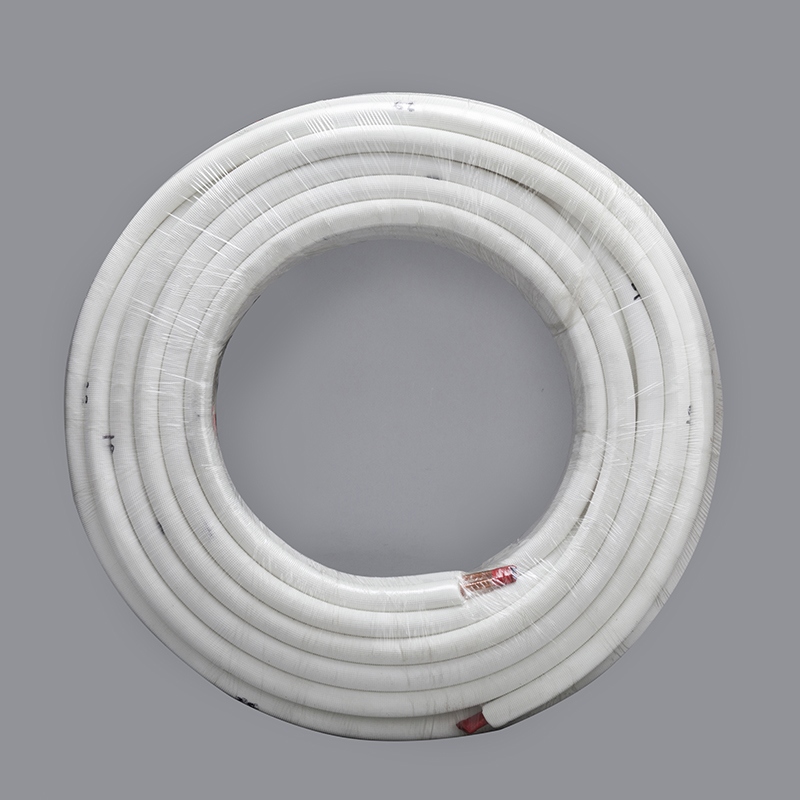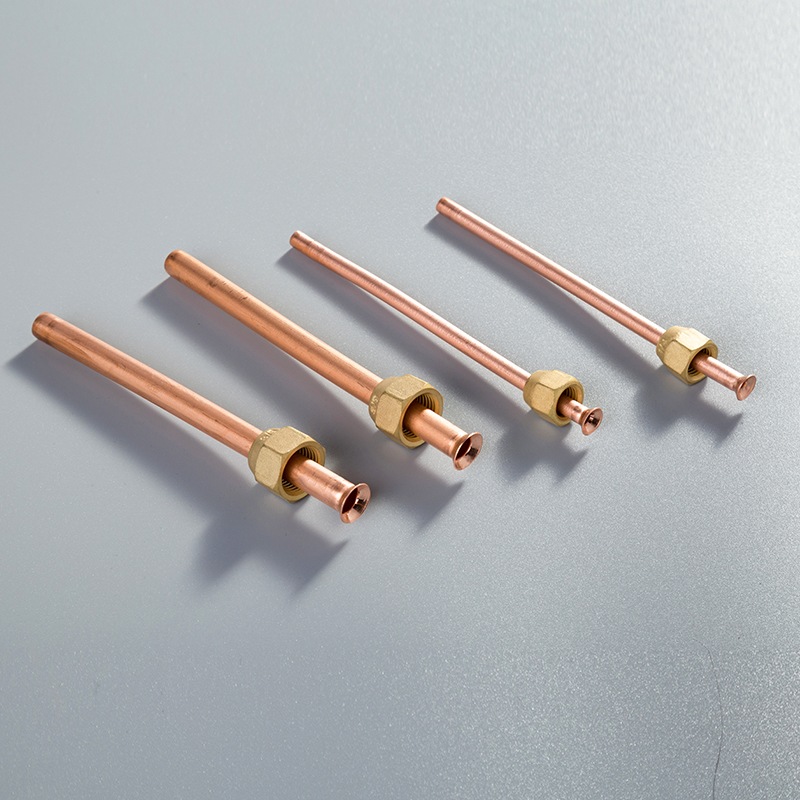What Are the Common Issues with Air Conditioning Copper Pipes?

What are the common issues with air conditioning copper pipes? Copper pipes play a vital role in air conditioning systems, ensuring efficient heat transfer for optimal performance. With superior heat conduction properties, copper is the trusted material of choice due to its resistance to corrosion and high thermal conductivity. This blog delves into the common issues with air conditioning copper pipes, shedding light on potential challenges faced by these essential components. By understanding these issues, readers can take proactive steps to maintain their systems effectively.
Corrosion

Copper pipes in air conditioning systems are susceptible to corrosion due to various factors that can compromise their integrity and efficiency. Understanding the causes of corrosion is essential to address this issue effectively.
Environmental Factors
Exposure to moisture, humidity, and harsh weather conditions can accelerate the corrosion process of copper pipes. These environmental elements create a conducive environment for chemical reactions that lead to degradation.
Chemical Reactions
Chemical interactions with substances like acids, alkalis, or other corrosive agents can trigger corrosion in copper pipes. These reactions weaken the material over time, potentially causing leaks and system malfunctions.
Signs of Corrosion
Detecting early signs of corrosion is crucial to prevent extensive damage to air conditioning systems.
Discoloration
Discoloration on copper pipes, such as green or white patches, indicates the onset of corrosion. These visual cues serve as warning signs for potential issues that need immediate attention.
Leaks
Corrosion can lead to the formation of tiny holes or cracks in copper pipes, resulting in leaks. These leaks not only waste refrigerant but also impact the overall performance and efficiency of the air conditioning system.
Preventive Measures
Taking proactive steps to prevent corrosion is key to ensuring the longevity of copper pipes in air conditioning systems.
Protective Coatings
Applying protective coatings on copper pipes can act as a barrier against environmental factors and chemical reactions that cause corrosion. These coatings provide an additional layer of defense, extending the lifespan of the pipes.
Regular Maintenance
Implementing a routine maintenance schedule, including inspections and cleaning, can help identify early signs of corrosion. Timely intervention through maintenance activities can mitigate potential issues before they escalate.
Leaks

When it comes to common issues with air conditioning copper pipes, leaks are a prevalent concern that can impact the system's performance. Understanding the causes of leaks is essential for effective maintenance and timely repairs.
Causes of Leaks
Poor Installation: Improper installation practices can lead to weak joints or connections, increasing the risk of leaks over time.
Wear and Tear: The natural aging process and continuous usage can cause copper pipes to develop cracks or holes, resulting in leaks.
Identifying Leaks
To address leaks promptly, it is crucial to be able to identify them accurately through thorough inspection methods.
Visual Inspection
Conducting a visual inspection of copper pipes allows for the detection of visible signs such as water stains, moisture accumulation, or discoloration that indicate potential leak points.
Pressure Testing
Performing a pressure test on the air conditioning system can help pinpoint leaks by pressurizing the pipes and monitoring pressure drops that signify areas of leakage.
Repairing Leaks
When leaks are detected, taking immediate action to repair them is vital to prevent further damage and ensure system efficiency.
Temporary Fixes
Applying temporary fixes such as sealing small cracks with epoxy or using leak-sealing tapes can provide short-term solutions until permanent repairs can be carried out.
Permanent Solutions
For long-lasting results, opting for permanent solutions like replacing damaged sections of copper pipes or re-soldering joints ensures the integrity of the system and prevents future leak occurrences.
Blockages
Copper pipes in air conditioning systems can face blockages due to various factors that hinder the smooth flow of refrigerant, affecting the overall efficiency of the system. Understanding the causes of blockages is essential to address this issue effectively and ensure optimal performance.
Causes of Blockages
Debris and Dirt
Accumulation of debris and dirt within copper pipes can obstruct the passage of refrigerant, leading to reduced cooling capacity. These particles may enter the system during installation or through environmental exposure.
Ice Formation
Ice formation inside copper pipes can cause blockages by restricting the flow of refrigerant. This phenomenon often occurs due to issues with temperature regulation or insufficient insulation, resulting in operational disruptions.
Symptoms of Blockages
Reduced Cooling Efficiency
When blockages occur in copper pipes, the air conditioning system may exhibit reduced cooling efficiency, causing inadequate temperature control and discomfort for occupants. This symptom indicates a potential obstruction that needs attention.
Unusual Noises
The presence of unusual noises, such as gurgling or hissing sounds, can signal blockages in copper pipes. These noises result from turbulent refrigerant flow caused by obstructions, highlighting underlying issues within the system.
Clearing Blockages
Professional Cleaning
Seeking professional cleaning services for copper pipes can effectively remove blockages caused by debris, dirt, or ice accumulation. Professionals use specialized tools and techniques to restore proper refrigerant flow and system functionality.
DIY Methods
Implementing do-it-yourself (DIY) methods like flushing the copper pipes with a gentle cleaning solution or using compressed air to dislodge debris can help clear minor blockages. However, caution must be exercised to avoid damaging the pipes during DIY maintenance efforts.
Insulation Issues
Importance of Proper Insulation
Energy Efficiency
Copper pipes play a crucial role in ensuring energy efficiency within air conditioning systems. The high thermal conductivity of copper facilitates the efficient transfer of heat, reducing energy consumption and enhancing overall system performance.
Preventing Condensation
Proper insulation on copper pipes is essential for preventing condensation issues that can arise during the cooling process. By insulating the pipes effectively, condensation buildup is minimized, maintaining the integrity of the system and preventing potential water damage.
Common Insulation Problems
Deterioration Over Time
Over time, insulation surrounding copper pipes may deteriorate due to environmental factors or wear and tear. Deteriorated insulation can compromise the efficiency of the system by allowing heat transfer to external surroundings, leading to energy wastage.
Improper Installation
Improper installation practices can result in inadequate insulation coverage on copper pipes. This can leave certain areas exposed, making them vulnerable to temperature fluctuations and condensation issues. Proper installation is crucial for ensuring uniform insulation coverage.
Solutions for Insulation Problems
Re-insulating Pipes
Re-insulating copper pipes is a practical solution to address deteriorated or damaged insulation. By replacing old insulation with new materials, the integrity of the system is restored, improving energy efficiency and preventing potential issues associated with poor insulation.
Using High-Quality Materials
Opting for high-quality insulation materials is key to ensuring long-term protection for copper pipes in air conditioning systems. High-quality materials offer enhanced durability and thermal resistance, providing effective insulation against external elements and maintaining system efficiency.
Testimonials:
A/C Handyman: Air Conditioning testimonials are powerful. They create believability, credibility, and a sense of security for our first-time customers.
Construction Update: If air conditioning is to become the norm in UK commercial and residential spaces, we must continue to use environmentally friendly materials to accompany them. Some air conditioner manufacturers have started to suggest that installers can use multilayer plastic pipe alongside their systems, as an alternative to copper, but installers should not be tempted to do this – it would only be a backward step when we already have a practical, sustainable material in copper.
In conclusion, addressing the common issues with air conditioning copper pipes is paramount for maintaining system efficiency. Regular maintenance and professional inspections play a crucial role in preventing potential problems. By promptly resolving issues such as corrosion, leaks, blockages, and insulation concerns, individuals can ensure optimal performance and longevity of their air conditioning systems. Remember, proactive care leads to a more reliable and efficient cooling experience.
See Also
Key Advantages of Copper Tubing for Air Conditioning
Benefits of Selecting Copper Tubing for Air Conditioning
The Impact of Pure Copper Tubing on Air Conditioning
The Importance of Pure Copper Tubing for Effective Air Conditioning
Revealing the Cooling Benefits: Pure Copper Tubing in Air Conditioners


